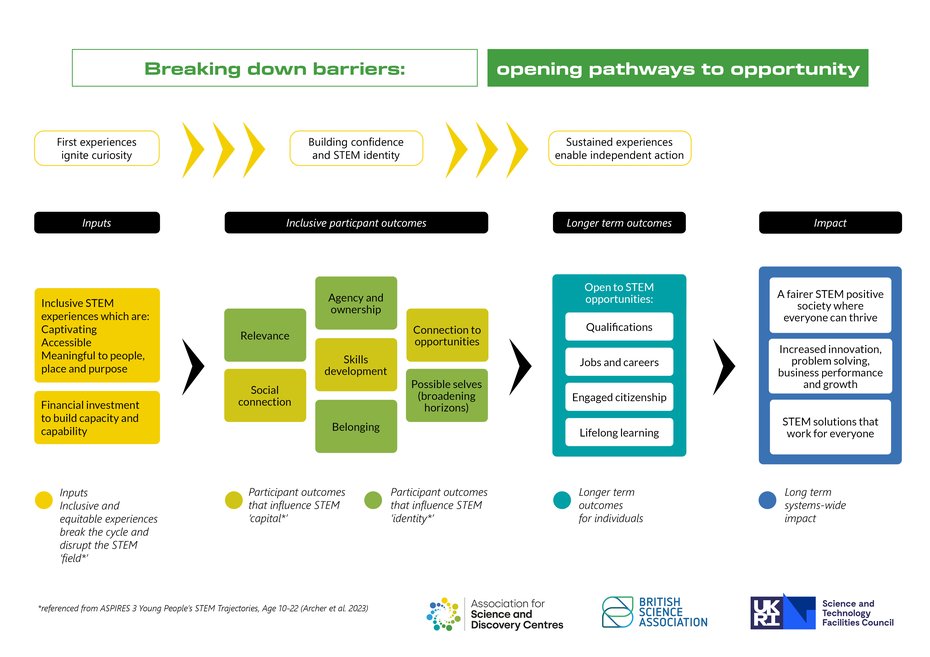Launch of new Valuing Inclusion Theory of Change
- Published: 15 Oct 2024
ASDC members, science engagement practitioners and evaluators joined the ASDC October Forum for the launch of the new evidence-informed Valuing Inclusion Theory of Change, funded by the Science and Technology Facilities Council (STFC).
This new framework ‘valuing inclusion’ is a tool for advocacy, producing a shared language of impact and a framework for practitioners to measure, prove and improve inclusive science engagement.
It’s also for the ‘people who don’t care about people’.
A bold statement… what does it mean? The framework has been created for people who do not or cannot advocate for equity, diversity and inclusion from a social justice standpoint, but can do so as an economic and business imperative. Addressing this will enable the changes in policy, practices and resources required to ensure everyone can access, contribute to and benefit from science, technology, engineering and maths (STEM).
The ambition of the Theory of Change is to break down barriers to engagement and open up pathways to opportunity, backed up by quantitative and qualitative research, evidence gathering programmes and interviews with science and discovery centre staff, their community partners, funders, evaluators and wider networks.
How?
Through change mechanisms that support:
- Agency and ownership
- Belonging
- Relevance
- Skills Development
- Social connections
- Possible selves (broadening horizons)
- Connection to opportunities
Equity and inclusion at the start is key – providing equity and inclusion at the start of this model is fundamental if we are ever to achieve diversity in STEM.
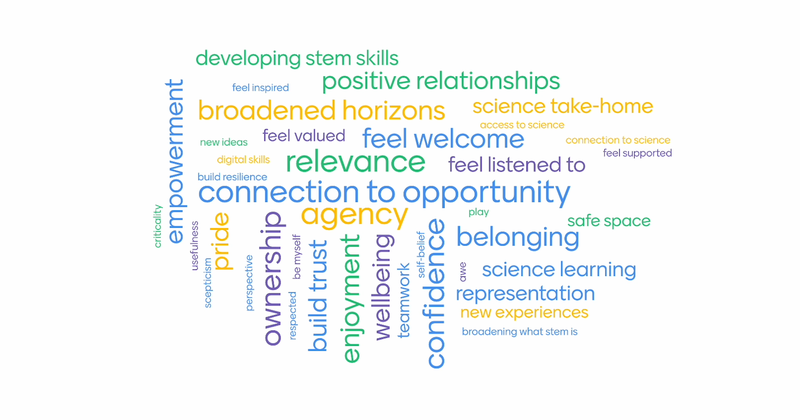
Our aim is to play our role in achieving a fairer, STEM-positive future society where everyone can thrive, STEM solutions work for everyone, with a STEM-sector that is innovative and prosperous.
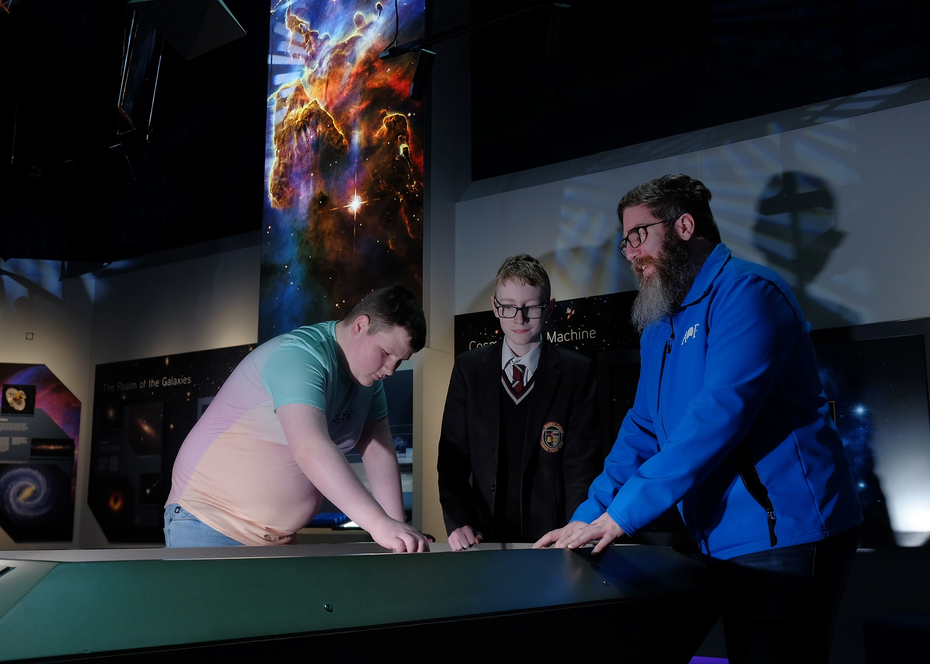
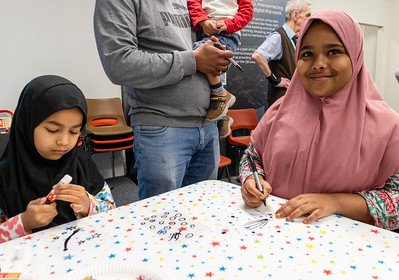
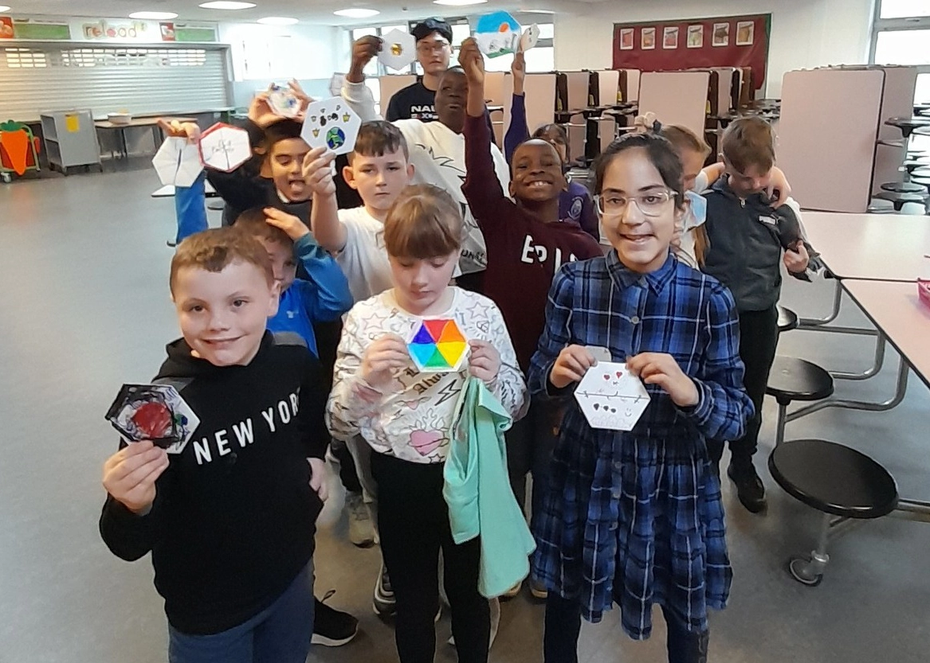
Validation of inclusive participant outcome areas :
Evaluation_Report_Explore_Your_Universe_Valuing_Inclusion.pdf
Evidence for our problem statement and areas defined within the Theory of Change: https://inclusion.sciencecentres.org.uk/resources/key-evidence/
With thanks to evaluators Jen DeWitt, Sophie Bartlett, Research partner Emily Dawson, our partners at the BSA Clio Hislop and James Brown, and our many consultants including Lewis Hou, Louise Archer, the Museums Association Sally Colvin and Piotr Bienkowski. ASDC would also like to thank the evaluation and impact leads at Cambridge Science Centre (Andrew Farrer), Glasgow Science Centre (Florence Edmond), National Space Centre (CJ Bishop) Science Oxford (Sian Stratton), Life Science Centre (Bethan Ross), We the Curious (Amanda Colbourne) and National Partners the IOP.
This programme is led by ASDC and supported by STFC (part of UKRI), who have developed an original delivery project (Explore Your Universe Phase 1) into a force for equity and social justice through science and technology in the Science and Discovery Centre network.

